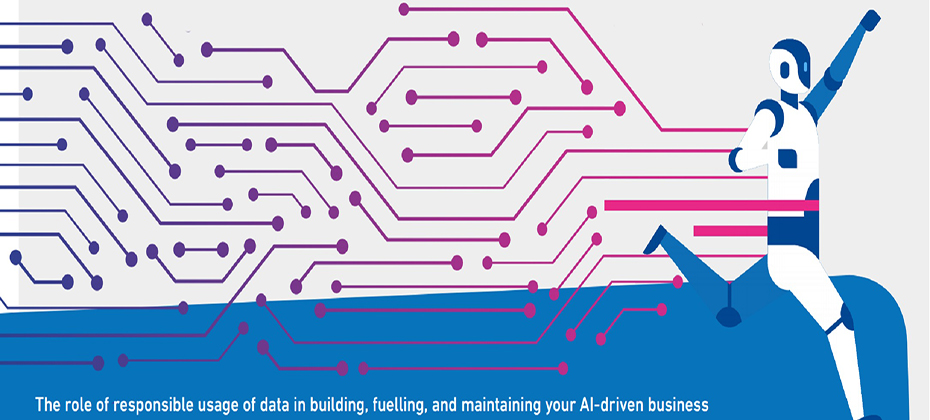All posts by Editor

Explore Experian’s insights for customer identity and its interrelationship with security, convenience, and personalization, from consumers and businesses Businesses often talk about creating the ultimate digital experience for customers but far less about the interrelationship between security, convenience, and personalization. This results in siloed security measures at major decision points across the customer journey. And, it’s a disconnect that’s perpetuated through equally siloed CRM systems that strive to identify customer preferences but fail to do so in a consistent and appealing way. The impact on consumers is that they are dragged through a maze of security and risk protocols while at the same time being targeted or re-targeted products and services that are not always relevant. We challenged senior executives at 650 companies to think about whether they can accurately identify their customers and meet their customers’ needs for a relevant experience to not only help them create a more trusted relationship with a consumer but also to reduce fraud losses. We also surveyed over 6,500 consumers who had a lot to say about what constitutes best-in-class digital customer experience. Perception versus reality Our study found that 95% of businesses worldwide believe they are accurately identifying their customers yet 55% of consumers don’t feel recognized. In our survey last year, 84% of businesses said that if they could better identify their customers, then they could easily spot fraud. However, 57% of business reported having significantly higher fraud losses this year versus last year. How can this be true if businesses are in fact as strong as they believe they are at recognizing their customers and thus, presumably by extension, fraudsters? This then begs the question: how are businesses defining “recognition” and is it really working? Are they recognizing a customer to a person or are they able to categorize a customer into prescriptive buckets such as broad demographic delineations? Expectations for customer engagement Our study also found that 74% of consumers say security is still the most important factor when deciding to engage with a business online. This has been a consistent finding over the past two years. In fact, consumers are even willing to give more personal information for greater security and easier access to their accounts later, once they are comfortable. Despite this, over half of businesses are prioritizing personalization over security when making improvements to their customer experience. Consumers acknowledged experiencing and appreciating the changes businesses are making to their digital experience however security remained to be their most important criteria for engaging or continuing to engage with a business. What now? Desires for ultimate experience and concerns for security are still shaping the digital relationship between consumers and businesses where identity is at the heart of every customer decision and interaction. We believe businesses will need to invest further in data, infrastructure, and advanced analytics in order to get to a point of truly recognizing a consumer digitally as opposed to categorizing for broad brush pseudo personalization purposes. Only then will businesses start to make a dent in fulfilling the high consumer expectations for recognition as well as in mitigating rising fraud. Download our report (15 min read) and find out more about: Challenges standing in the way of businesses trying to identify their customers What different businesses and countries are doing to improve identity authentication The new type of customer journey that executives believe will improve the digital experience

I am delighted to announce that Experian has been recognised by the Top Employers Institute as a Top Employer in the UK, Spain, Bulgaria and South Africa. The annual research programme recognises leading employers around the world. Organisations certified as Top Employers dedicate themselves to providing the very best working environment for employees through their progressive ‘people-first’ HR practices. Being recognised as a Top Employer four years in a row is a significant achievement for us, but it wouldn’t have been possible without the support of our incredible workforce. By listening to our people and encouraging new ideas, they have continued to help us develop our working culture and pushed the boundaries to create the best possible working environment. An integral part of this is to encourage diversity throughout Experian and that means building our ways of working and our approach in a way that offers equality of opportunity, supporting our employees from the moment they join our organisation, at every level, and letting people work flexibly, in the way that suits them. We have been working hard to create a place where everyone has the freedom to explore and share interests, no matter what their individual story is, without fear of judgement. The more inclined we are to bring our rich outside world to work, the more we will expose others to new perspectives and different thinking, making Experian a great place to work. I’m extremely proud of the progress we’ve made over the last 12 months, with my personal highlights including our on-going partnerships with the likes of Women in Data, Stonewall and the Business Disability Forum, as well as the development of our employee health and well-being offerings. It’s important that we continue to build on this success, looking for new ways to do things, and continuing to provide a working environment that our people love.

This blog is written by Matt Dunn, GTM Managing Director at Experian. The Women in Sales Awards recognises the exemplary efforts of individuals in sales teams across Europe. Open by nomination only, the awards celebrate the achievement of women who go above and beyond in their career. It aims to promote the needs for greater gender diversity in sales and executive leadership teams across the corporate landscape. We place significant emphasis on helping and supporting women to reach senior roles, and I’m delighted that seven colleagues – Laura Webster, Kathryn O’Brien, Liz Clarke, Ivelina Mihaleva, Bally Ubhi, Clare Brown and Caroline McCrystal - were nominated as finalists at the awards. Even better, Caroline was named as the overall winner in the ‘2019 Best Woman in Inside Sales’ category. Not only that, Caroline was also the winner of the ‘Most Distinguished Saleswoman of the Year’ award too. In total, there were more than 1,000 nominations from companies in 22 countries, which goes to show what a remarkable and fantastic achievement to be recognised in such a way. We’re extremely proud of all their efforts this year and I’m sure you’ll join me in congratulating all of the nominees and Caroline on their outstanding success.

We’re delighted to have been named as one of Britain’s ‘Most Admired Companies’ (BMAC) in Management Today’s annual survey, coming 21st in a list of nearly 250 leading firms from a variety of sectors, and taking third place in the ‘Business Support Services’ sector. Our 17,000 colleagues around the world work hard every day to service and power opportunities for our customers and this award is testament to the commitment they bring to our business every day. The hard work doesn’t stop here. We continue to strive for the highest standards across our global organisation, and we remain committed to delivering the very best services that can empower millions of people to stay in control of their finances, and help businesses meet the needs of their customers. For further information on BMAC, the winners and the methodology, please see: https://www.managementtoday.co.uk/bmac

In today's fast-paced markets, businesses of all sizes strive for an edge over competition, especially when it comes to wining over consumers' hearts and minds. Many find that competitive advantage in the way they apply artificial intelligence to improve their customer decision-making for high business performance. Data strategies for high-performance decisioning In today's fast-paced markets, businesses of all sizes strive for an edge over competition, especially when it comes to wining over consumers' hearts and minds. Many find that competitive advantage in the way they apply artificial intelligence to improve their customer decision-making for high business performance.In fact, recent research we commissioned from Forrester Consulting shows that this. The ability to make meaningful decisions that match your customer's context at a given point in time requires a solid understanding of their needs and goals. Having access to relevant data is essential to consistently deliver experiences that matter. Timing and availability of data is equally important to improving your customer-level decision-making; to make those sought-after better, contextual decisions, you need to have the pertinent data available at the right place and time to meet that given consumer's moment of need. For example, in an operational environment, this may translate into accessing the right type, amount and quality of data in real time, so you are able to respond how and when your customer expects. The role of responsible usage of data in building, fuelling, and maintaining your AI-driven business The energy needs of athletes exceed those of the average person. Similarly, in the AI world, data (nutrient) needs for high-performance require consistent markers over a long period of time. Data scientists looking after credit and fraud risk would use the same variables or 'nutrients' that have been traditionally used for conventional scorecard developments to fuel machine learning methods to build predictive models. These are 'proteins' such as application data, any behavioural data your business has on existing customers, credit bureau data, segmentation data, available public information or transaction data. Some trended economic data can be used as input for developing credit risk methods and governance to fit leading financial reporting standards and frameworks (think of IFRS 9 or Basel, for example). Similarly, to assess affordability, you will need to feed your algorithms with disposable income over your customers' lifetime plus data about how they use it. Financial data about customers' savings, and investments allows for more accurate risk management while property related info derived from rental data is useful for extending personalised credit offers. Meanwhile, more and more businesses are using speech and text data obtained through voice recognition to improve the collection process. In fact, recent research we commissioned from Forrester Consulting shows that this 'race for the customer' comes down to who knows them best. The ability to make meaningful decisions that match your customer's context at a given point in time requires a solid understanding of their needs and goals. Having access to relevant data is essential to consistently deliver experiences that matter. Timing and availability of data is equally important to improving your customer-level decision-making; to make those sought-after better, contextual decisions, you need to have the pertinent data available at the right place and time to meet that given consumer's moment of need. For example, in an operational environment, this may translate into accessing the right type, amount and quality of data in real time, so you are able to respond how and when your customer expects. The role of responsible usage of data in building, fuelling, and maintaining your AI-driven business The energy needs of athletes exceed those of the average person. Similarly, in the AI world, data (nutrient) needs for high-performance require consistent markers over a long period of time. Data scientists looking after credit and fraud risk would use the same variables or 'nutrients' that have been traditionally used for conventional scorecard developments to fuel machine learning methods to build predictive models. These are 'proteins' such as application data, any behavioural data your business has on existing customers, credit bureau data, segmentation data, available public information or transaction data. Some trended economic data can be used as input for developing credit risk methods and governance to fit leading financial reporting standards and frameworks (think of IFRS 9 or Basel, for example). Similarly, to assess affordability, you will need to feed your algorithms with disposable income over your customers' lifetime plus data about how they use it. Financial data about customers' savings, and investments allows for more accurate risk management while property related info derived from rental data is useful for extending personalised credit offers. Meanwhile, more and more businesses are using speech and text data obtained through voice recognition to improve the collection process.

To stay ahead of the competition and on the path of sustained growth, you need clear line of sight to both risks and opportunities through the customer lifecycle. Gaining better insights on customers is critical to achieving that, so you can make all the right decisions, big and small, about your customers and business clients. Based on the conversations we have with our clients, we have noticed that most executives are paying a lot of attention to measuring customer experience and reducing friction across digital touch-points through the lifecycle. For customer acquisition, for example, businesses like yours look at time spent on each micro-step (e.g. data field), dropout rates at each of those steps, and do A/B testing at a very granular level. The idea is to understand all points of friction including points of confusion, frustration, etc., so you can learn from those and improve the experience. But this is not an easy task. The various challenges involved are making sense of the vast quantities of data and the immaturity of that data as well as the construct of that data. Given the fast pace at which data analytics change and evolve, our recommendation is that you invest in tools that are data and/or analytics agnostic. Thinking ahead: leveraging data analytics and cloud-based decisioning platforms to design the right customer treatment There is a largely untapped opportunity to leverage data, analytics, optimisation and decision management solutions - such as cloud-based decisioning platforms - to design the right customer treatment and identify the next best action for that customer. Selecting the appropriate timing, medium, and channel for those actions lead to greater consistency and contribute to having more relevant communications with your customers. The more relevant you are, the more precise you are with the offers and the treatments leading to improved response rates, greater connectivity and interaction with the customer. This results in memorable experiences that enhance loyalty and drive profitability.

This blog is written by Lisa Fretwell, Managing Director of Data Services at Experian. It’s no secret that women are hugely under-represented in careers relating to science, technology, engineering and mathematics (STEM). In fact, research suggests that only 13% of the overall UK workforce are women in STEM and, as a consequence, we find ourselves with fewer female role models to inspire confidence and ambition in the next generation. Positive female role models are fundamental if we are to transform some of the preconceptions that girls have about a career in STEM. And part of encouraging new generations into our industry means recognising and celebrating the achievements of those women blazing a trail here and now. That’s why we are delighted to be sponsors of today’s Women in Data (UK) conference for the third successive year. This unique event helps inspire, educate and support women across the data industry. It’s a privilege to be part of the Women in Data community, to get to know more amazing women in our industry and to share their incredible stories. One of the highlights of the event is the annual ’20 Women in Data and Technology’ recognition, celebrating incredible role models who are motivating others to pursue their own career ambitions in the industry. We were particularly thrilled to learn that our very own Louise Maynard-Atem, has been included in this year’s highly prestigious list. Congratulations to Louise on a truly phenomenal and well-deserved achievement. Experian’s goal is to have a workforce that’s as rich in diversity as the people who use our services. That’s one of the many reasons we’re so excited by WiD’s mission. Together we hope to empower and encourage more women into the data industry, supporting the next generation of data scientists who can help shape the future.

We are delighted to have been placed on the inaugural Financial Times’ 2020 Diversity Leaders list, released today and accessible here. The organisers spoke to more than 80,000 employees across Europe to build the list, asking employees to rate their own employers as well as other firms around multiple categorise, taking into consideration areas including age, gender, ethnicity, disability, LGBTQ+ and overall diversity of ideas and backgrounds across the company. Over the last few years we’ve worked hard to focus on inclusion and diversity across our global business. We believe that embracing a truly inclusive culture, one where everyone has a real sense of belonging, is critical to building a diverse workforce and fostering innovation. Ultimately, it’s our ambition for our business to become as diverse as the people we serve around the world. We’re dedicated to encouraging diversity at every level within Experian. That means building our culture, our ways of working and our approach in a way that offers equality of opportunity. Supporting our employees from the moment they join our organisation, at every level. Letting people work flexibly, in the way that suits them and opens the door to new opportunities. One of the five key tenets of The Experian Way is “Value Each Other”. That means that each one of us is responsible for making this a great place to work. We treat each other with respect, trust and integrity. We support and invest in each other to help everyone achieve their potential and aspirations. We promote a culture of inclusivity and value diversity of all kinds, including thinking, knowledge and experience. Our goal is to embrace and celebrate the diversity of ideas and backgrounds across the company. This diversity of thinking, and the way we harness it at Experian, helps to fuel our innovation and ultimately our ongoing success as a business. Like many companies, we have more to do to be as inclusive as we would like to be. But we are proud of the work we’ve done to date, and we are delighted by the recognition given to us today.

Today (Nov. 11) Americans celebrate Veterans Day to honor all of the men and women who have served our country in uniform and to thank those who are currently serving around the world. We also take time to welcome a new generation of veterans home from war. We remember our Gold Star families who have endured the loss of a family member making the ultimate sacrifice in service to their country. More than 25 million veterans are now home in America. They are our friends, our families, and our loved ones. Far too many have endured the shock and pain of a combat deployment, some have become disabled, and many have made the ultimate sacrifice. All who have served have given up some of themselves as well as some of the best years of their lives. Experian is proud to embrace our veteran community and allow the flexibility for our coworkers who continue to serve. Our Military, Veterans And Patriots Employee Resource Group continues to be involved in many opportunities across our local communities from building wheelchair ramps for disabled veterans to participating in endurance challenges such as Carry the Load National Relay road march and the Murph Challenge. We recently launched Experian IDnotify, a credit and identity protection service, at no cost for those who are on active duty. We are committed to serving those who are serving us. If you have a family member or friend serving on active duty, please share the link. This Veterans Day let us take a moment to remember the sacrifices of the courageous men and women who heroically fought for the freedom and honor of America to make it the greatest nation on earth!